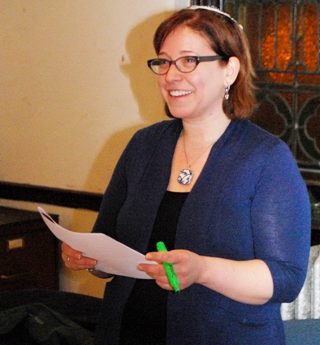Brandon Tate-Brown, a 26 year-old African-American man, was, according to his mother and friends, finally putting his life back together. After spending some time in jail for aggressive behaviors, he was trying to rehabilitate himself—working at a new job and finally moving into an apartment of his own. On December 15, 2014, Brandon Tate-Brown was killed in an officer involved shooting in Philadelphia. The police said they pulled over Brown because the headlights of his car—a rental from his place of employment (Hertz Rent-A-Car)—were out. They reported that after pulling him over for a routine traffic violation, they spotted a gun in the front seat and asked him to exit the car. Then, a physical altercation ensued, escalating until one police officer shot Tate-Brown in defense.
However, according to surveillance videos from four stores in close proximity to the shooting, the rental car headlights were on at the time the police pulled over Brown. And according to this video, it appears that while some conflict occurred, Brown was shot in the head while running away from, not trying to pursue, the police officers. All the while, the police refused to release the footage to the public, only giving access to Brown’s mother and lawyer after tremendous pressure. The police department has not released the names of the police officers involved; they were cleared of wrongdoing on February 18, 2015. As of the time of my writing this, there is no independent investigation of the shooting.
This case is concerning both because it appears to be yet another racially motivated policing “incident” that ends with the death of a black man and because it points to a flaw uncovered by this year’s events in Ferguson and Staten Island: the lack of accountability and transparency in our policing system.
The value of transparency and accountability in leadership is not new – it is as old as the days of the ancient tabernacle. Pekudei, the very last Torah portion in the book of Exodus, begins with Moses giving a surprisingly detailed accounting of the expenses incurred for building the tabernacle. He names the materials involved and accounts shekel for shekel what the costs were for each one. At first glance, this section feels odd. Why would Moses need to do this? Don’t the people assume he used their financial gifts appropriately? Moses, through his actions, communicates the vital importance of transparency and accountability to those we serve. He models effective leadership, sharing with the people information that alleviates their worries and builds trust.
I believe the Philadelphia police—and police departments in every city and county—can learn from Moses’ Torah. We need our police system to have greater transparency and accountability. There are many possibilities for how to do this, including the proposal of police officers wearing body cameras. Through POWER, Philadelphians Organized to Witness Empower and Rebuild, Philadelphia faith leaders (including myself) are calling for the creation of an independent, fully funded and empowered Review Board of Police. An independent review board, made up at least in part of concerned citizens, would exist outside of the police department and would hear citizens’ complaints, create independent investigations of police involved shootings (with all the evidence provided), and make recommendations to the justice department. An independent review board would also review current policies and practices of the police department, report on trends observed—like racially motivated police interventions—and make recommendations for changes within the police department. This need not be an antagonistic activity—review boards can work collaboratively with the police to build a greater sense of understanding and trust. An independent review board is not the only answer for addressing police accountability, but it is a beginning. I invite you to find out if there is such a board in your city or county and, if not, what you might be able to do to advocate for one.
Moses models for us the importance of being open and responsible to those we serve. In the times in which we live, his behavior is also a call for us to hold our leaders accountable and demand transparency. In doing so, we hope and pray that justice and truth will flourish and that we working together, we can change our systems so they truly work for all people.
Rabbi Lauren Grabelle Herrmann is the founding rabbi of Kol Tzedek Synagogue in Philadelphia, PA and is co-chair of the POWER clergy caucus.
Want to receive Torah from T’ruah in your inbox every week? Sign up here!

